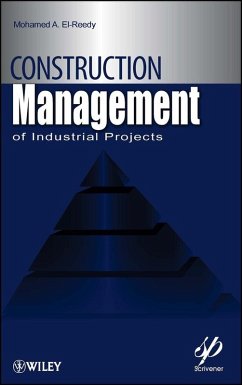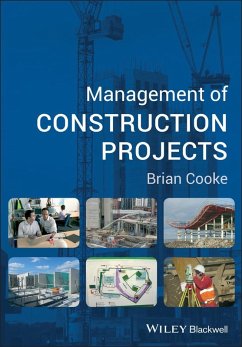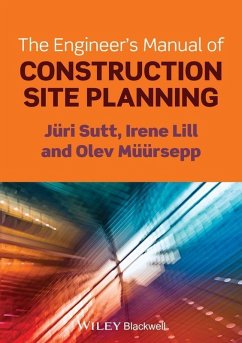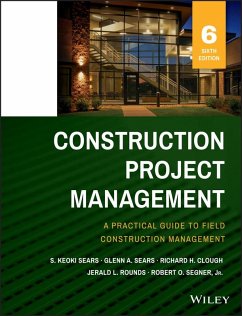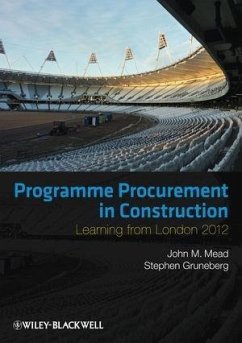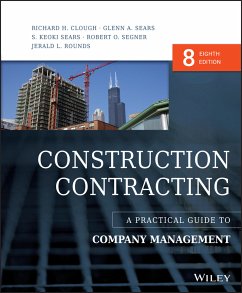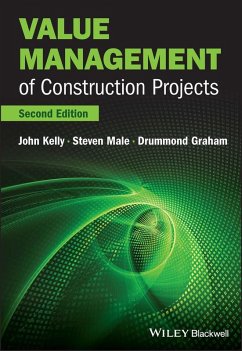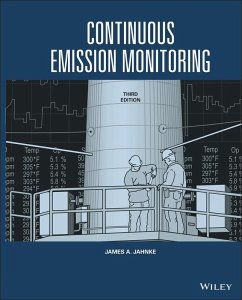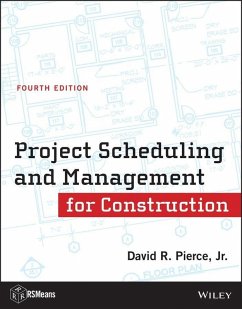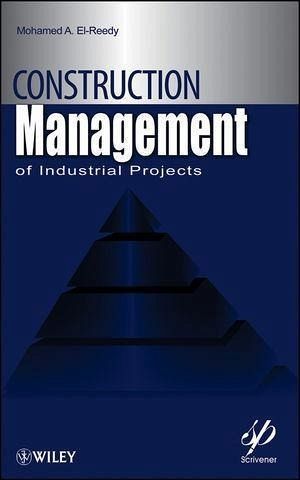
Construction Management for Industrial Projects (eBook, ePUB)
A Modular Guide for Project Managers
Versandkostenfrei!
Sofort per Download lieferbar
190,99 €
inkl. MwSt.
Weitere Ausgaben:

PAYBACK Punkte
0 °P sammeln!
This book presents techniques for effective and successful project management across all phases of the project, covering all of the management tools and leadership skills for any industrial project, from the beginning of the project, through the feasibility study, execution, and through to operations and maintenance strategy. This book presents advanced modern tools for use by management and engineers in decision making, and it covers the gap between project management theories of the actual project. All statistical tools and probability distributions are discussed for use in the qualitative r...
This book presents techniques for effective and successful project management across all phases of the project, covering all of the management tools and leadership skills for any industrial project, from the beginning of the project, through the feasibility study, execution, and through to operations and maintenance strategy. This book presents advanced modern tools for use by management and engineers in decision making, and it covers the gap between project management theories of the actual project. All statistical tools and probability distributions are discussed for use in the qualitative risk assessment of the project. The Monte-Carlo simulation technique is presented as a tool for risk assessment in the feasibility study phase and the construction management skills that are required on site to control the different parameters that affect quality, time and cost are discussed. The new concept of the total building commissioning technique will be presented, as well, a new method that is not covered in other volumes.
Moreover, all the methods that are used in the economic analysis and the evaluation between alternatives are illustrated. The planning and scheduling of the project are illustrated by the Critical Path Method (CPM) and the Program Evaluation and Review Technique (PERT). The control of resources and costs are very important issues that are covered in the book, and these provide the main tools for controlling and monitoring the performance of the project. Tendering, bidding and contracting methods are critical issues in any project due to their impact on the project performance and are discussed along with different methods and ways for dealing with these issues worldwide and on international projects. Resources organization and ways for enhancing project performance by controlling individual attitudes are very important issues that are clarified.
Finally, managing project risk is the main tool for a successful project, so all the techniques for risk analysis, assessment and evaluation is presented. This volume is a "one-stop shop" for project and construction management of industrial projects, for engineers, managers, owners, and anyone else working on the project.
Moreover, all the methods that are used in the economic analysis and the evaluation between alternatives are illustrated. The planning and scheduling of the project are illustrated by the Critical Path Method (CPM) and the Program Evaluation and Review Technique (PERT). The control of resources and costs are very important issues that are covered in the book, and these provide the main tools for controlling and monitoring the performance of the project. Tendering, bidding and contracting methods are critical issues in any project due to their impact on the project performance and are discussed along with different methods and ways for dealing with these issues worldwide and on international projects. Resources organization and ways for enhancing project performance by controlling individual attitudes are very important issues that are clarified.
Finally, managing project risk is the main tool for a successful project, so all the techniques for risk analysis, assessment and evaluation is presented. This volume is a "one-stop shop" for project and construction management of industrial projects, for engineers, managers, owners, and anyone else working on the project.
Dieser Download kann aus rechtlichen Gründen nur mit Rechnungsadresse in D ausgeliefert werden.




